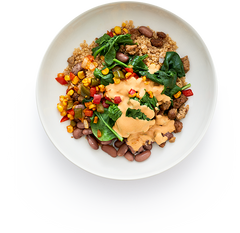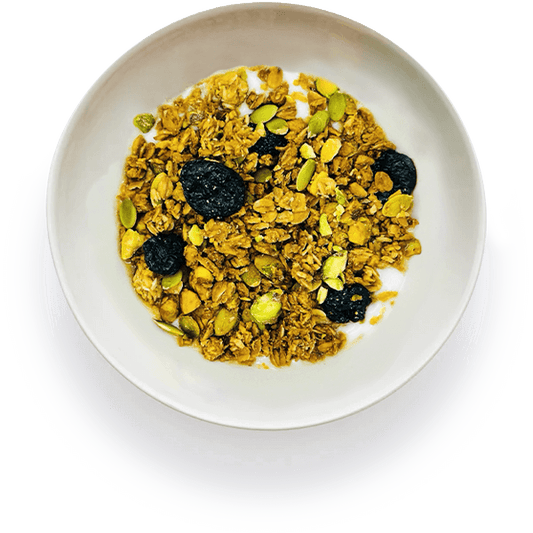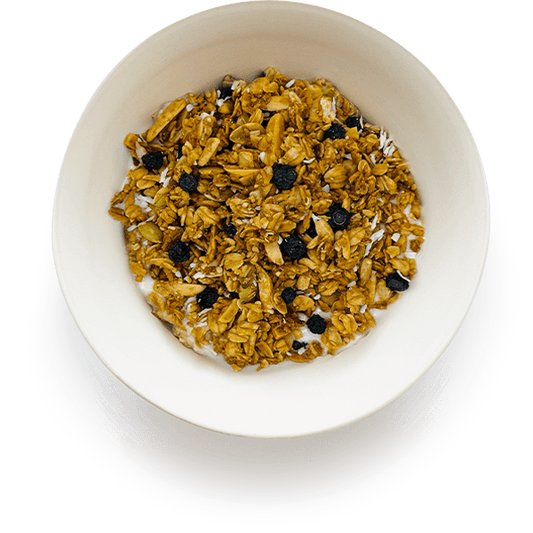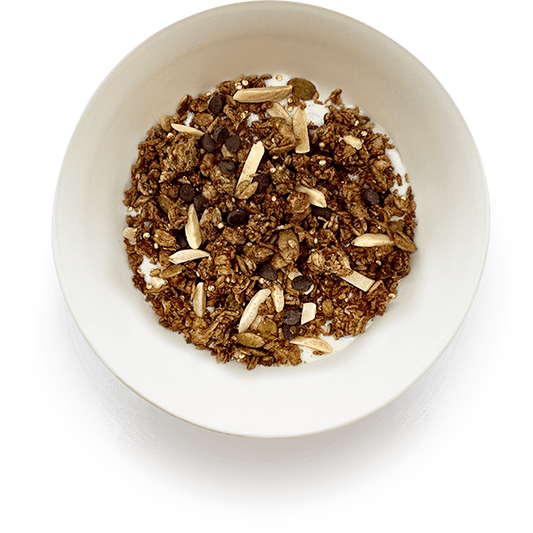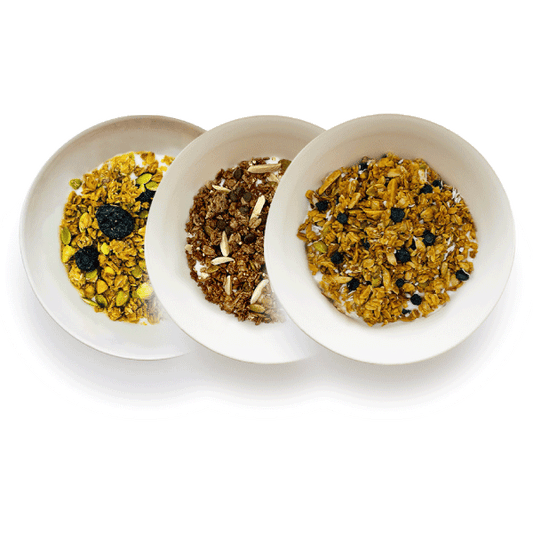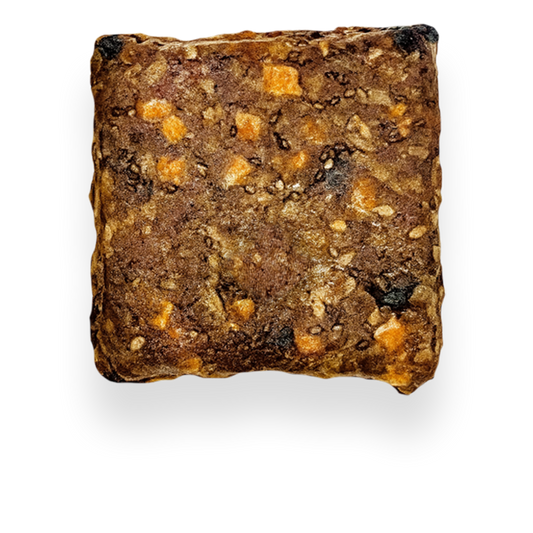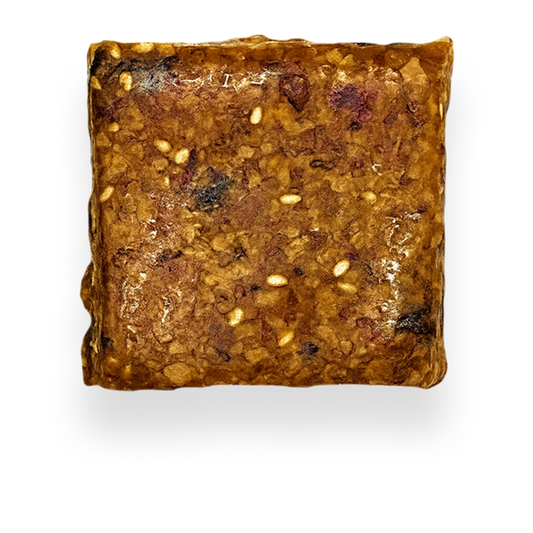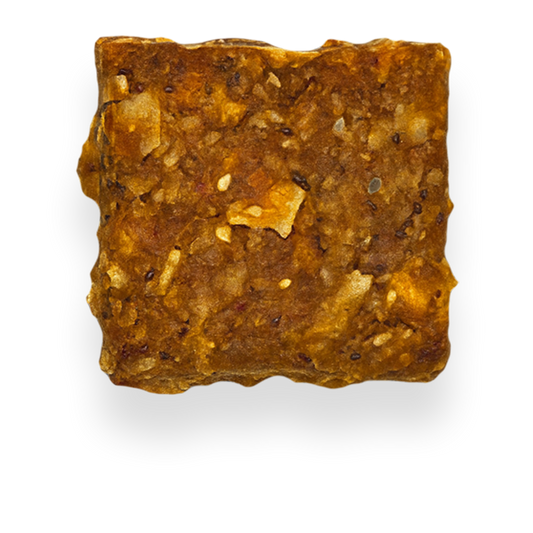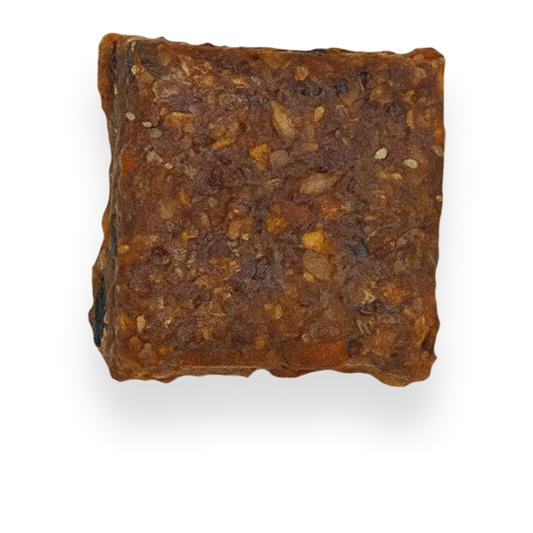Five Best Plant-based Protein Sources for Performance Nutrition
By Kristen Sunstrum, RD

Protein is the building block for life - literally.
This essential macronutrient goes beyond muscle protein synthesis (the fancy word for muscle repair and growth), and helps to support neurotransmitter production, red blood cell synthesis and even helps keep you warm at night [1, 2].
If you don’t consume enough protein, functionality and performance will start to become compromised. This is because protein is the only macronutrient the human body cannot store. If protein and energy are lacking in the diet, the human body will start to slowly source amino acids from muscles and organs to replenish its needs over time.
Ultimately, protein needs are in constant flux, and need to be replenished each day for optimal performance.
The checklist for plant-based performance protein
When it comes to plant-based protein, not all proteins are created equal and require a bit more attention to detail, especially when we are talking about eating for performance.
Some things to keep in mind when choosing plant-based proteins are the include:
High protein bioavailability
Naturally, plant-based proteins are high in fiber, phytates and starches. While these plant-compounds are beneficial for human health in moderation, they can reduce the bioavailability of protein found in plant-based foods as they bind to protein and prevent it’s digestion and absorption.
Protein bioavailability can be improved by soaking, sprouting and cooking plant-based proteins. These methods break down the fibers, isoflavones, phytates and starch in plant-based proteins, making the food easier to digest and increasing protein content by as much as 12% [3].
High leucine content
Leucine is a branched-chain amino acid (BCAA) and is considered to be the most important amino acid to jumpstart the muscle repair and growth process. The International Society of Sports Nutrition recommends that 3 g of leucine are consumed after exercise for muscle building [4].
High iron content
The fiber, phytates and starch in plant-based proteins can limit the absorption of iron the same way it does for protein. Iron bioavailability can be improved by soaking, sprouting and cooking plant-based proteins and by consuming a source of vitamin C, such as red peppers, dark leafy greens or citrus fruits with each meal.
Five best plant-based protein sources for performance nutrition
Lentils
Lentils (whether red, green or brown) are powerful sources of plant-based protein and rich in iron.
1 cups of cooked red lentils contains:
- 240 calories
- 19 grams of protein
- 1.40 grams of leucine
- 7 grams of iron
Meal inspo: Try it in our Hearty Ragu, featuring 33 grams of plant-based protein.

Pumpkin seeds
Pumpkin seeds aren’t restricted to the ones you grew up eating after carving pumpkins - these shell-free, green seeds are nutrient dense sources of protein.
¼ cup of pumpkin seeds contains:
- 195 calories
- 11 grams of protein
- 0.85 grams of leucine
- 3 grams of iron
Meal inspo: Try it in our Golden Pumpkin Oatmeal, with 16 grams of plant-based protein.

Tofu
Created from pressed soybeans, tofu is a versatile and complete protein source that takes on a variety of different flavours.
1 cup of cooked tofu contains:
- 350 calories
- 40 grams of protein
- 3.5 grams of leucine
- 15 grams of iron
Meal inspo: Try it in our Creamy Thai Curry, featuring sprouted high-protein tofu to maximize protein bioavailability and 31 grams of protein.

Almonds
Almonds that are ground, such as in a meal or butter form, are more bioavailable as it breaks down the fiber and phytate content.
¼ cup of whole almonds contains:
- 200 calories
- 8 grams of protein
- 0.5 grams of leucine
- 1.5 grams of iron
Meal inspo: Try it in our Dark Cacao Almond Smoothie, powered with almond butter and features 16 grams of plant-based protein.

Quinoa
Quinoa is not a grain, but a seed. It is protein-packed and often used in place of other traditional grain dishes, such as rice or noodles.
1 cup of cooked quinoa contains:
- 235 calories
- 9 grams of protein
- 0.5 grams of leucine
- 3 grams of iron
Meal inspo: Try it in our Tex-Mex Scramble, featuring quinoa and 35 grams of plant-based protein.
